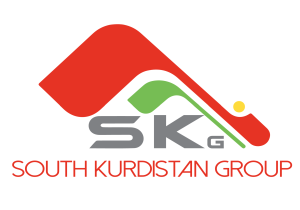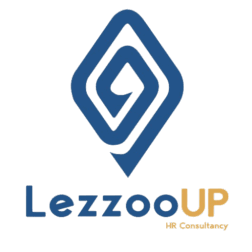Mission and objectives
United Nations Development Programme (UNDP), a key UN member since 1945 and active in Iraq since 1976, is dedicated to aiding the country's transition to stability and reform. Aligned with the government's vision, UNDP strives for a resilient Iraq by addressing social, economic, environmental, and political challenges. One of its primary goals is to fortify institutions, ensuring they provide inclusive, evidence-based, and gender-responsive services, with a focus on vulnerable populations. This involves promoting transparent, accountable governance to safeguard the rights of marginalized groups and foster citizen trust in the state.
The Support to Justice Initiatives curbing Corruption and promoting Commercial Dispute Resolution (ACAI) project, part of the governance portfolio, aims to combat corruption and advance commercial dispute resolution in Iraq. It has five key outcomes: refining the legal and strategic framework for anti-corruption, boosting the capabilities of the justice sector to handle corruption cases, strengthening legislation and institutions for commercial dispute resolution, garnering parliamentary support for anti-corruption reforms, and enhancing transparency and public accountability. The Trial Monitoring (TM) Programme, falling under output 2, specifically focuses on monitoring high-level corruption cases in Iraq's specialized courts.
Context
In collaboration with the Erbil Governorate Joint Coordination Centre (EJCC), UNDP is supporting the revision and development of a comprehensive, climate-resilient urban greening master plan aligned with the broader Erbil City Master Plan. The 2011 master plan requires updating to integrate updated technical, environmental, and socio-economic data, address sustainability imperatives, and improve feasibility for investment and implementation. The consultant will support the government’s technical team in revising the plan and conducting a multi-dimensional feasibility study to ensure climate finance eligibility and programmatic coherence. The engagement is key to enhancing environmental resilience, carbon sequestration, and socioeconomic benefits through informed design and execution.
Task description
Revision of the 2011 Masterplan and Current Situation Analysis
• Review the existing master plan and validate gaps.
• Conduct detailed site assessment (land use, ownership, infrastructure, hydrology, soil/topography, biodiversity).
• Integrate updated socio-economic data.
• Ensure climate change considerations and alignment with the Erbil City Masterplan.
Multi-faceted Feasibility Study
• Technical Feasibility: Assess irrigation systems, reforestation design, and plant species selection.
• Economic Feasibility: Develop a cost-benefit analysis (CBA), explore income streams (carbon credits, eco-tourism), and identify funding gaps.
• Environmental Impact Assessment (EIA): Preliminary EIA, air/soil quality analysis, and carbon sequestration estimates.
• Social Impact Assessment (SIA): Analyse job creation, social benefits, and community engagement implications.
Design Optimisation and Phasing
• Collaborate with local experts for value engineering.
• Develop phased implementation plan.
Proposal and Bill of Quantities (BOQ) Preparation
• Prepare project proposal with clear Sustainable Development Goals (SDG alignment), climate finance eligibility, and implementation framework.
• Develop sector-based Bill of Quantities (BOQs) covering land preparation, irrigation, planting, infrastructure, fencing, structures, supervision, and contingencies.
• Provide pricing basis, cost disaggregation, and funder-friendly breakdowns.
Application deadline is 04 August 2025
Skills
Required experience
7 years
Nationality
Candidate must be a national of a country other than the country of assignment.
Assignment requirements
Relevant experience
7 years
Languages
English, Level: Fluent, Required
Arabic, Level: Working knowledge, Desirable
Required education level
Master's degree in Urban Planning, Environmental Science, Civil Engineering or Agricultural Engineering
Competencies and values
• Accountability
• Adaptability and flexibility
• Creativity
• Judgement and decision-making
• Planning and organising
• Professionalism
• Self-management
Skills and experience
• Minimum 7 years of professional experience in urban master planning, infrastructure feasibility, and environmental assessments
• Proven experience conducting Environmental Impact Assessments (EIA) and Social Impact Assessments (SIA)
• Experience in performing economic viability studies, including cost-benefit analysis (CBA)
• Previous involvement in similar assignments in post-conflict or fragile contexts
• Prior work experience in Iraq or the MENA region is an asset
• Technical proficiency in GIS, land use planning, and engineering or infrastructure design
• Strong knowledge of climate change adaptation and sustainability frameworks
• Familiarity with SDG alignment and climate finance mechanisms such as carbon credits
• Excellent written and verbal communication skills in English
• Strong stakeholder engagement, facilitation, and coordination abilities
• Excellent oral and written skills; excellent drafting, formulation, reporting skills.
• Accuracy and professionalism in document production and editing.
• Excellent interpersonal skills; culturally and socially sensitive; ability to work inclusively and collaboratively with a range of partners, including grassroots community members, religious and youth organizations, and authorities at different levels; familiarity with tools and approaches of communications for development.
• Ability to work and adapt professionally and effectively in a challenging environment; ability to work effectively in a multicultural team of international and national personnel.
Area(s) of expertise
Development programmes, Energy and environment

















